Pensacola pastor Ted Traylor worked in his family’s grocery store as a boy, and when he answered the call to ministry, his mother gave him some sage advice.
“She said, ‘We’re in the people business at the IGA. If you can sell green beans here, you can share the gospel in your church.’ She told me I needed to work on having a good relationship with people in order to be a good pastor, and she was correct,” he shared.
Traylor, pastor of Olive Baptist Church in Pensacola, Florida, for nearly 32 years, spoke at the Intentional Leader Conference hosted by the Alabama Baptist State Board of Missions in Prattville on July 26. He used Malachi 2:6 as his text and said he was inspired by Jonathan Edwards, who had the verse posted on the wall of his church in Northampton, Massachusetts.
Traylor said the pulpit in our churches is central and elevated for a purpose.
“We’re called to proclaim God’s word, and this is primary,” he said. “We must walk with God and be committed to the highest ethics in money, marriage and morality. And though it’s the hardest thing I do, we must be committed to personal evangelism, not just preaching evangelistic sermons.”
State missionary Ken Allen, director of the SBOM office of LeaderCare, said he and colleague Rob Jackson, director of the office of church health, plan to offer resources for church leaders based on four aspects of leadership: person, pastor, preacher and pathfinder. The event served as a launch and overview of this effort.
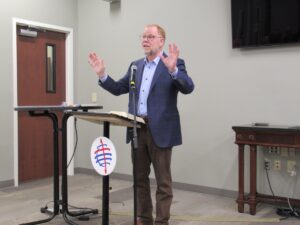
Person of value
Allen emphasized the pastor, like his fellow believers, is a person of value to God.
“Ministers can grow ‘dry,’” Allen said. “But in our walk with God, we find acceptance, security and significance. We need to practice the disciplines of Scripture reading and prayer. The greatest thing you can bring to your church is your growth in godliness.”
Allen warned against comparing oneself to others who might have different or greater gifts.
“In the comparison game, we all lose,” he said.
It’s healthy for pastors to have friendships and some hobbies or diversions they enjoy beyond normal church life, he advised.
As pastors, ministers must work at being likable, which serves to pave the way for their messages, Allen said.
“When we walk into a room, do we bring blue sky or torrential downpours?” he asked with a laugh. “We must look people in the eye and really listen to them. We should know the color of their eyes and the names of their children!”
As Allen trains pastor search committees, he often asks committee members what kind of minister they’re looking for. The response he suggests is, “If you have a man that loves you and loves God’s word, is he the pastor you want?” This descriptor meets with great acceptance, he said.
Love people
Jackson affirmed that people skills serve as a prelude to the pulpit. Ministers must love people, look them in the eyes when speaking, pay attention to their children, pray for them and write personal notes, Jackson advised.
He acknowledged that preaching is hard work. He said he heard at the Southern Baptist Theological Seminary that “a sermon is God’s inspiration and your perspiration.”
He counseled attendees to be themselves in the pulpit, to avoid condemning others, to be passionate and to devote time to application of Scripture.
Jackson insisted churches without a vision will flounder, which is why the pastor must seek a vision for ministry from God.
“We need to get away for a few hours or a few days and commune with Him,” he said. “Take your Bible, a notepad or a computer, and ask God to give you a vision of something that cannot be accomplished apart from Him.”
Ministers won’t always be successful, Jackson said, but he’s found inspiration from baseball legend Babe Ruth who said, “Never let the fear of striking out keep you from swinging the bat!”
The vision should be communicated to key leaders, asking for their affirmation and insight, and then shared prayerfully with the full congregation, Jackson said.
Challenges may come
“I don’t callously say, ‘God told me [thus and so],’” he noted. “I say, ‘After prayer, I believe God wants us to do [thus and so]. Please seek God with me as we attempt to confirm this new vision.’”
Visionary leaders may face unjust criticism, but Jackson counseled, “You are never a failure until you quit, and it’s always too soon to quit.”
The next training installment will be Jan. 17 with certified Christian conciliator Ken Sande, co-author of the book “Resolving Everyday Conflict.” This will focus on the pastor as a person of peacemaking. The third installment will highlight pathfinding and will be April 10–11 in partnership with a transitional pastor training event.
More information is available at 334-613-2210 or by emailing Ken Allen at kallen@alsbom.org.
Allen and Jackson offer a brief “Ministry Moments” email every Monday that is available by request.

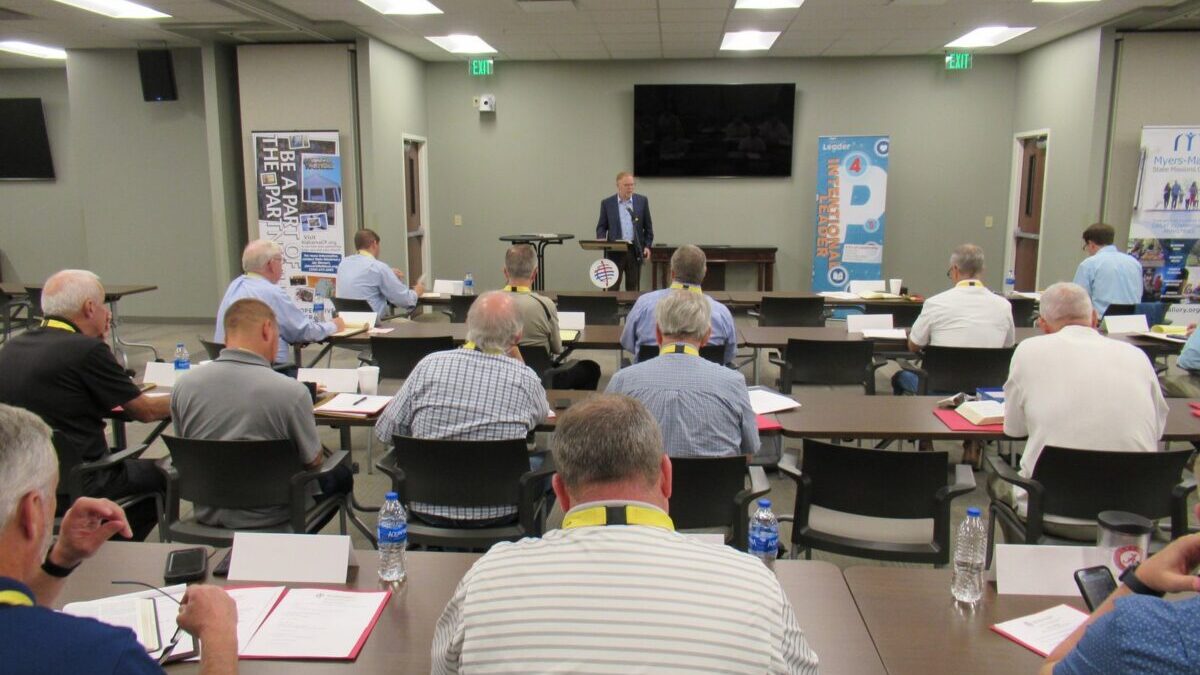

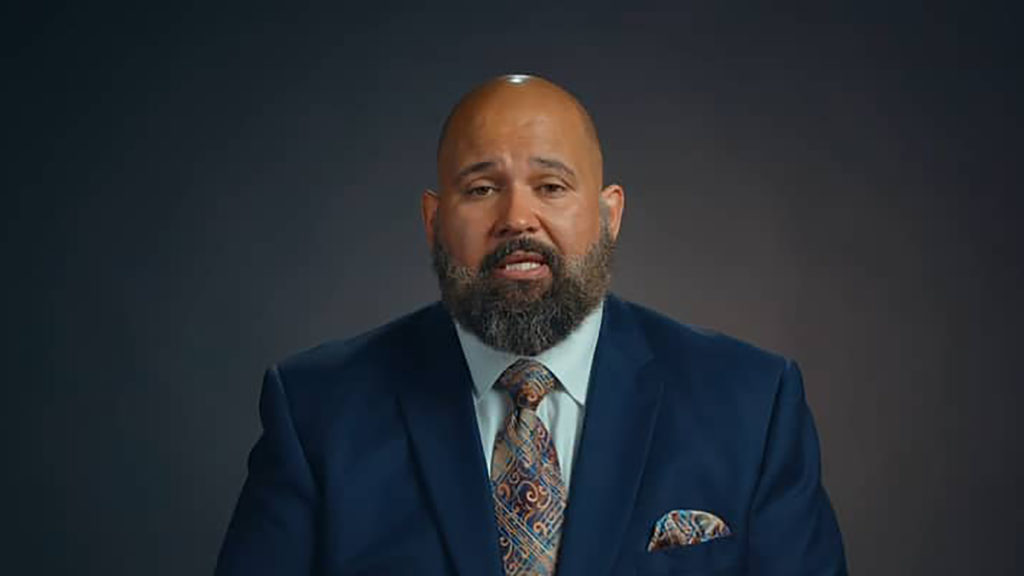
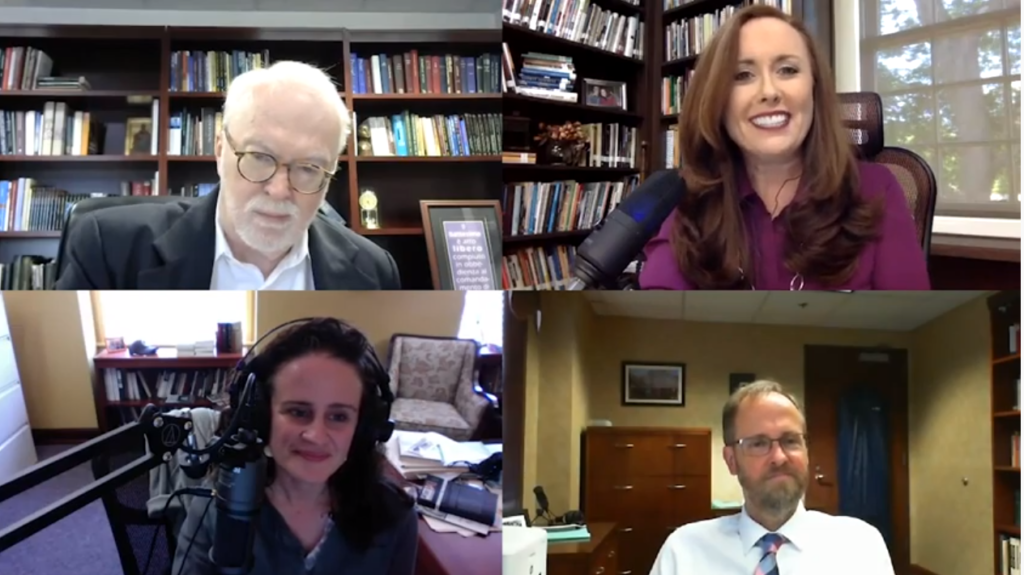
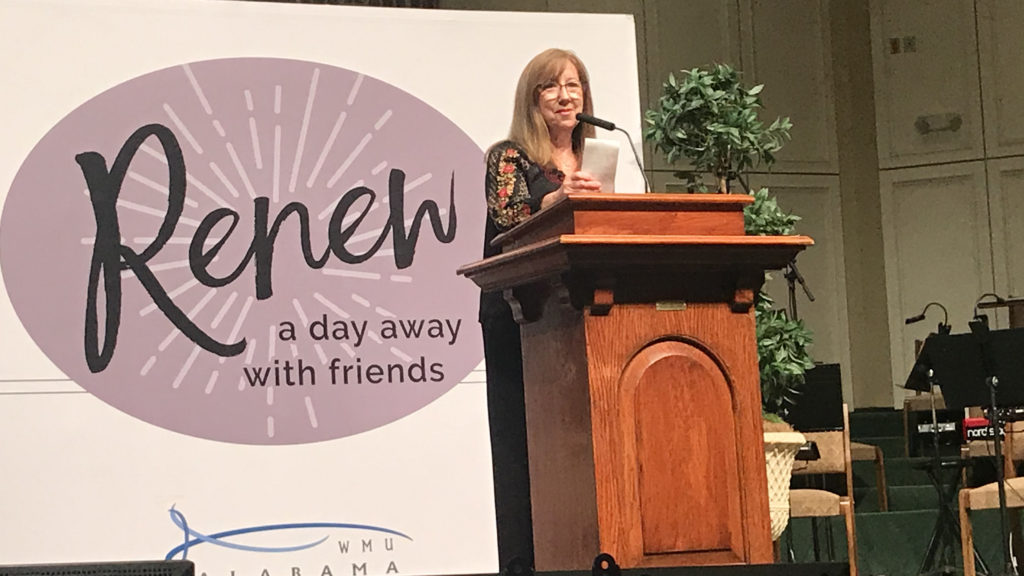
Share with others: